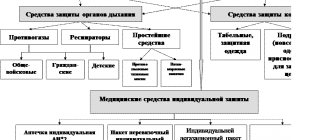Hi all! If you do not resort to expressed anger, this will lead to other forms of its manifestation. One such form is passive-aggressive behavior. Passive aggression is a behavior during which the expression of anger is suppressed.
People with this trait use cruel jokes, resort to ignoring the requests of others, openly expressing that the requests of others are not so significant, although in reality they are more than important. I will try to explain what passive aggression is, what signs it has and how to get rid of this illness.
Characteristics of people
Due to the fact that people with a passive-aggressive personality type do not want to solve their problems, they try not to enter into conflict even at a time when it is almost inevitable. They prefer to take the easy way out without doing anything. Their behavior tactics: look from the outside, judge other people, while having their own opinion about a particular situation. Unfortunately, they do not realize that this position is far from winning - passive-aggressive people are easy to manipulate.
A sick person may realize that this behavior is wrong, but it is difficult for him to change anything. He becomes withdrawn, constantly worries, considers everyone around him to be selfish and deceitful. People with such a disorder are easy to single out from a group. They are constantly unhappy, condemn others and try to passively show their disagreement with other people's opinions.
How to recognize
There are a number of signs by which you can identify a passive-aggressive person. These include:
- apathy, absent-mindedness;
- irritability;
- tendency to blackmail, manipulate;
- refusal to make contact, isolation;
- abrupt termination of the dialogue (for example, “that’s enough, that’s enough”);
- depression;
- suicidal ideas.
There is no general picture that characterizes passive aggression. Manifestations depend on the person’s temperament. For example, a phlegmatic person may completely withdraw into himself, and the speech of a choleric person will turn into a stream of sarcasm. At the same time, to the question “what happened?” an indifferent or irritated answer “nothing, everything is fine” will follow.
Main causes of aggression
To date, this disorder has not been fully studied. However, it was found that passive aggression occurs 2-3 times more often in men than in women.
Such people constantly feel humiliated, and they may be bothered by feelings of guilt. What reasons can lead to such a condition? Let's look at the main ones.
- Anxiety. Those people who are constantly suspicious often suffer from depression. Individuals with such problems become apathetic and do not want to resist. They can only agree with the opponent’s opinion, even if it is fundamentally different from their own. At the same time, strong aggression arises in the soul towards the person who is trying to impose his opinion.
- Passivity. People who are unable to solve their problems in life and constantly run away from them often suffer from passive aggression. Moreover, the initial cause is not necessarily the problem; often such a trait is inherent in the character.
- Gullibility. This is a problem if a person is an adult, but still with childish naivety believes everyone around him. Such people are easy to manipulate. They do not realize the danger that threatens if they agree with everyone and trust them.
Emotions
For patients with PAPD, irritation and anger will be common conditions. This is understandable because people feel they are being held to arbitrary standards and are undervalued or misunderstood. Patients often fail to achieve their goals in the professional sphere, as well as in their personal lives.
They are unable to understand how their behavior and attitudes influence the difficulties they experience. This leads to further irritation and dissatisfaction as they again believe that circumstances are to blame. Patients' emotions are largely determined by their vulnerability to external control and the interpretation of requests as a desire to limit their freedom. When interacting with others, they constantly expect demands to be made and, accordingly, resist.
Additional reasons
There are less common reasons why this problem occurs.
- Psychological dependence. An excellent example of passive aggression can be given if we draw an analogy between an employee and a manager. Some bosses are capable of not only imposing their point of view, but also exerting pressure. A person with a similar problem, afraid of losing his job, will silently agree.
- Love of pleasure. At the moment, this reason is quite common. Example: A person likes certain things that can affect or even destroy his image in society. Therefore, he has to agree with certain judgments that run counter to his personal opinion.
- Greed. If a person understands that he is dependent on someone materially, then he will remain silent and agree with all the thoughts of his opponent.
- Indecisiveness. If a person cannot solve his problems due to indecision, then he will not have the strength to confront another person. He considers his opinion erroneous and frivolous. It seems to him that if he tries to speak out, he will be laughed at. This leads to passive aggression. How to deal with it will be described below.
Why do some men practice it all the time?i
Due to temperament, sometimes profession, or some specific understanding of the image of a “real man,” some representatives of the stronger sex consider it necessary to demonstrate aggressiveness and power in bed. If the partner of such a “macho” does not have a tendency towards masochism, you can sympathize with her. Let's look at the three most common types of men prone to hard sex:
- “Cool” always and in everything. He is deliberately rude in everyday life, speaks disparagingly of so-called “weaklings,” and may be homophobic. He seems to know nothing about respect in a woman. Phrases such as “women are needed for only one thing” can be heard from him very often.
- "Big Man" Men in leadership positions often have a tough and domineering character. Constant moral tension and the burden of responsibility lead to irritability. For such men, sex is not pleasure, but rather a way to relieve tension and throw out accumulated aggression.
- "A person who likes to assert himself." Essentially, men of this type are insecure losers. They are most often unable to increase their self-esteem through achievements in business, sports, or work, since they react extremely painfully to even minor failures and give up what they started halfway through. The bed remains the only place where, showing feigned authority, they can assert themselves. At the expense of a loving woman, mind you.
Reasons from childhood
Often this problem arises from early childhood. There are often cases when a child is teased at school, but he is afraid to answer directly and may do something nasty. At this age, such behavior is most amenable to correction. Parents and the teacher (class teacher) must have a conversation and teach the child to verbally fight back. If we are talking about a boy, then you can sign him up for boxing. This will give the child confidence and save him from developing passive aggression.
Passive aggression is like the underwater part of the iceberg. It can be more dangerous than obvious attacks, because it is more difficult to notice and defend in time. Even the passive aggressor himself may not realize what he is doing, making excuses: “I was just joking!”, “They are not offended by the truth!” Often, the manipulator passes off hidden attacks as a neutral attitude or even goodwill! How to bring this type to clean water?
Toxic consequences. Passive aggression can be compared to spreading poison: this is the so-called “toxic” behavior.
The victim's self-esteem drops, a persistent feeling of inferiority, worthlessness and failure arises, his mood deteriorates, a pessimistic attitude and negative scenarios for the future are formed. Often the counterpart of a passive aggressive person abandons his plans: faced with depreciation, he no longer believes that something will work out, and does not even want to try.
So, after “friendly” advice from a colleague, I once abandoned the idea of publishing a manuscript for a year, while subsequently the book was a success.
How to recognize. You've probably encountered the following situations:
- After an apparently “nice” conversation, you were left with a “bitter aftertaste.”
- The other person didn't say anything overtly negative, but you felt devalued.
- As a result of the conversation, you began to doubt yourself (you feel stupid, fat, unsuccessful, etc.).
- After “friendly advice” and “support”, you abandon long-term plans and ideas.
- You ask for advice, but all you get is an indication of mistakes.
- You proudly shared your successes, and after your interlocutor responded, you no longer considered them achievements.
- You ask for support and receive criticism.
- The interlocutor begins to discuss you and your life without a request from you and does it critically. We met someone who is escalating the situation. Often, such people do not address anyone in particular, but let out remarks into the air: “Soon everything will be even worse,” “Total bad omens lately.” As a rule, the phrase begins with the words “I hope you won’t be offended”, “I don’t want to offend anyone” and the like. If your interlocutor uses such constructions, remove the particle “not” and you will understand his true intentions.
Who becomes the aggressor and how. Aggression is a natural, innate feeling given to us to protect ourselves and our interests. But if an animal attacks only in specific situations, for us humans everything is much more complicated, and aggression from an instinctive tool of self-defense often turns into an unhealthy mechanism of destruction. Why?
Instinct forces our hostility to seek a way out through the body: screaming, hitting and biting the offender. But such manifestations are inhibited by upbringing from early childhood. Man is a social animal, and his behavior must be controlled and socially acceptable.
Many-faced emotion. Psychology professor and expert on aggression Arnold Bass identified several types:
- Physical – the use of force against another person.
- Indirect – indirect or undirected.
- Verbal – formal (screaming, screeching) or meaningful (curses, threats).
- Irritation is a readiness to express negativity. Negativism is passive or active opposition to rules.
- Resentment – including for fictitious actions. Suspicion – to the point of being painful and harmful.
- Feelings of guilt - directed at oneself.
It is important for adults to teach a child to deal well with his aggression, this means recognizing it in time and expressing it in socially acceptable ways or restraining it. A healthy model is to be direct about your feelings. But this is not possible in all families, and as a result, the child, having never learned to express his anger and resentment directly, turns into an aggressor.
In some families there is an unspoken taboo on aggression, and perhaps on feelings in general. And family members express their emotions indirectly: for example, instead of “I’m angry with you,” they say, “Let’s teach, otherwise you’ll embarrass yourself again.” The mechanism of passive aggression is consolidated in childhood: it begins to form before school, and is established in adolescence. So sometimes a person himself sincerely does not understand that he is being destructive: since childhood he has been accustomed to suppressing aggression. And he doesn’t know how to act differently.
How to fight?
Step 1 Legalize aggression, that is, make it obvious, returning responsibility for his actions to the attacker. The following phrases will help you: “So, what is happening now?”, “What are you doing now?”, “Do you want to devalue me, hurt me?”, “For what purpose are you saying this?”, “What kind of reaction are you getting from me now?” are you waiting? This gives a chance to rebuild the relationship.
Step 2 If legalization does not help and the interlocutor denies aggression, you need to protect yourself: either distance yourself, or strengthen your boundaries. Sometimes distancing or even stopping communication is the best way out. Let there be advantages in communication, but if such a minus is attached to them, then in relationships, as in mathematics, “plus for minus gives a minus.”
Christina and Tatyana have been friends since childhood. Tatyana got married early, Christina was “in search.” At some point, Christina began to notice: Tatyana devalued all her fans, while using her husband and her own relationships as an example. Tatyana explained what was happening with concern for her friend, but in fact she entered into a competitive relationship and behaved passive-aggressively. When Christina got married, she realized that her friend was devaluing her marriage and was trying to destroy it, instilling doubt in her husband and his love. No matter how bitter it was for Christina to stop communicating with her childhood friend, she made up her mind and saved the marriage.
Step 3 But it is not always possible to distance yourself from a passive aggressor: he can be a colleague, a neighbor, a relative... And then, while maintaining the density of communication, you can change your attitude towards the situation: strengthen psychological boundaries, developing stability, not taking this person’s words to heart and without giving in to provocations. In this case, contact statements will help you - short remarks instead of dialogue: “Oh, it looks like you’re in a bad mood...”, “Thank you for sharing your opinion...”, “I heard you...”, “Well, it seems , we see it differently.”
For a person, another person is always an object to satisfy his aggressiveness. Sigmund Freud
Alina did not have a good relationship with her mother-in-law: she was initially against the marriage of her beloved son, believing that only a “princess” deserved him. Alina constantly had to deal with depreciation and criticism. There were no open attacks because the mother-in-law considered herself “intelligent” and pretended to be polite. When Alina stopped giving in to provocations, her mother-in-law was surprised and after a few months she also changed her behavior.
What am I? It may well be that in the passive aggressor you recognized... yourself. How to get out of this role? Ask questions more often: “What feelings am I experiencing now?”, “What do I really want to say?”, “What reaction do I expect from my interlocutor?” Learn to talk about your negative feelings directly: “I’m offended by you,” “I’m very angry,” “It looks like I’m annoyed,” “I envy you.”
Find other channels for releasing aggression, for example through the body, through movement: walking, playing sports, dancing and other physical activity. By changing yourself, your reactions and behavior, you change the world around you: loved ones, acquaintances; pass on healthier behavior patterns to your children.
Author - psychologist Irina Solovyova, for the magazine “Our Psychology”
Passive aggression in men
Why this disorder occurs in men depends on a large number of factors. First of all, this is usually due to a weak nervous system. If a person tries to hush up the problem or get away from it, pretending that it doesn’t exist and waiting for it to resolve itself, then he has probably already developed (or has every chance of developing) passive aggression. Often this problem is due to the fact that a man is afraid to express his point of view. He does this so as not to get into trouble in return. At the same time, in his heart he wants to defend his opinion.
Why is passive-aggressive personality disorder dangerous?
At the very least, damaged relationships with others. Psychologists call this situation social maladjustment. A person who is always complaining, gloomy, and unwilling to keep his word is often left without family, friends, and even a job.
At the same time, he does not feel guilty. Social collapse seems to the passive aggressor just another confirmation that “everyone around is an asshole” and strives to infringe and offend him. Because of this self-obsession, some scientists classify chronic passive-aggressive behavior as a narcissistic personality disorder.
How to identify a problem from the outside?
In order to understand that a man has the problem described, you need to take a closer look at his behavior. A great example of passive aggression is in an anecdote. A lion and a hare are sitting in a restaurant. The first one hit the table with the phrase: “Now you will know what it’s like to disagree with me!” The hare ran home in fright, curtained all the windows, also hit the table and said, “You won’t scare me!” This is exactly how people with the described problem behave.
You need to pay attention to the fact that the man does not show initiative and constantly condemns others. He can be irresponsible: he promised a lot, but did nothing. He may say that he will finish later, but “later” lasts quite a long time. Often guys with this problem hate women. They may not know how to talk to them, and any harsh word they say offends and hurts. Quiet aggression manifests itself precisely in hatred, when a man condemns the female sex and says that it is not worth communicating with him.
Alcoholism and drug problems can also be manifestations of passive aggression. Due to worries that a person cannot defend his opinion, he begins to drink alcohol or use any toxic substances. Often, under their influence, he can openly enter into conflict, splashing out all the aggression. But after the intoxication ends, active behavior will again be reduced to a minimum.
Passive-irritable/disgusting (inner circle version)
Technique: If someone annoys you with their actions or does something disgusting, act surprised, confused, or curious. Examples: Oops!
What was it? (Constantly looking around, as if in fright) You blow your nose in a way that is both disgusting and indecent. Wave your palms, dispersing the air in front of you, with a furious look. Oh! I know it was you who farted, you bastard from the 32C seat.
If a luckier customer cuts you off at the checkout counter, raise one eyebrow as if to express surprise, “Wow!” Don't even pretend you didn't just cut me off, you socially useless idiot!
Sorry, I think you dropped something. Shame on you! I had to pick up the trash that you allegedly accidentally dropped at the sidewalk. So: this is not accidental! You must be ashamed!
Technique: Disguise your disapproval as innocent and caring questions. Examples: Should I take your socks away? Maybe you left them on the floor so you could put them on again? You're a pig and I'm not going to clean up after you!
How is your search for an apartment going? When will you finally move out?
Passive aggression in women
As mentioned above, women are less susceptible to this phenomenon. This is due to the emotional background. When a girl finds herself in an unpleasant situation, she tries to throw out all the negative emotions. As a rule, aggression of this kind is found in those women who are cautious by nature and try to look as positive as possible in the eyes of others.
If a person is able to think about consequences, then he will probably not enter into all conflicts indiscriminately. There is a stereotype that women first do, speak, and only then think about what happened and how it will now affect them. However, most representatives of the gentle sex are able to react well in a critical situation and not run into conflict in order to achieve a certain goal. Another character trait that will lead to passive aggression is flattery. If a person constantly flatters another, then he most likely hates him. This behavior is more common in women than in men. If a woman behaves submissively, accepting any point of view, then you should not expect good news from her. Few people would like having their feet wiped on it.
Problems with self-esteem and jealousy, which are so common in female society, also give rise to passive aggression.
When is passive-aggressive behavior adaptive?
Under certain conditions, passive aggression can be a healthy, highly adaptive response. Call it tact, humor, restraint, altruism or even courage, it is also passive aggression. Humor or diplomacy can defuse a highly volatile situation and prevent bombs, real or metaphorical, from being dropped. More dramatic cases of passive aggression are the “nonviolent” protests led by Mahatma Gandhi and Martin Luther King Jr.
For anyone who is oppressed, disempowered, and has no other means of resistance, nonviolent protest is one way to show feelings and make demands: the lone Chinese student determinedly challenging a tank in Tiananmen Square is now a universal symbol of such protest.
There is a difference between healthy and neurotic passive aggression. It's the difference between tact and deflection, humor and rejection, civil disobedience and obstructionism. A healthy person uses passive aggression to help him achieve his goals. Neurotic passive aggression will get you nowhere.
To some extent, passive aggression is common to all of us. When we are faced with impending danger, sometimes passive-aggressive behavior allows us to act in the best way to get us out of trouble or lead to a better state.
The problem with passive aggression is not that it is present at all, but that it is sometimes excessive or inappropriate. When it permeates all types of interactions, and not just individual cases, passive aggression becomes neurotic. It is this irrelevance that causes all the problems.
What to do and how to resist?
Before you begin to fight this form of aggression, you need to fully understand that the person has a mental defect. The easiest way to help him change is to talk to him frankly.
What to do if the reader himself suffers from the problem described? First of all, you need to figure out why this or that person causes negative emotions. There is no need to judge other people if their actions do not directly affect you. It should be understood that such behavior shows that the person is weak in spirit and finds it difficult to cope with problems. Self-analysis training can help.
It should be noted that envy is a difficult feeling that primarily destroys the one who feels it. The same must be said about aggression. You can get rid of this problem in the initial stages.
Drug therapy
This problem cannot be treated with drug therapy. Drugs can only be used to suppress the consequences - severe depression, anxiety, low self-esteem, apathy, and so on.
Passive aggression can only be treated through conversations with the person. At the same time, they should be aimed at self-analysis. A person needs to figure out why he reacts this way and not otherwise, why he experiences negative emotions, why he tries to run away from his problems. This is the only way to provide effective help to the patient.
Results
The article describes what passive aggression means and how to deal with it. In such a situation, the optimal treatment would be a psychotherapist who will discuss all the problems with the patient and help him find out the reasons for hatred, aggression, and self-doubt.
Seeing a doctor will have the greatest effect at the initial stage of the problem. When it gets worse, it becomes difficult to help the patient.
Moreover, if he does not want or does not see a problem in this, then it will be impossible to change the state of things. It should be understood that a person’s psychological background is a fragile thing, so forcing him to see a doctor can lead to worse consequences.
It is worth remembering that this condition will not go away on its own. There are often situations when, as a result, a person “goes” into alcohol. At this stage, helping him will be problematic. You can only try to correct his behavior in communication, but without trying to impose your opinion on him. There is especially no need to explain the whole situation to such patients when they are drunk. This can cause open aggression, which can result in serious consequences.
Where does passive-aggressive personality disorder come from?
Scientists honestly admit that they do not know the exact reason. However, there are some known factors that increase the risk of developing chronic passive aggression:
- neglect, abuse and excessive punishment in childhood;
- excessively low self-esteem;
- abuse of alcohol and other psychoactive substances;
- chronic stress;
- depression;
- anxiety disorders;
- bipolar disorder;
- attention deficit hyperactivity disorder (ADHD);
- schizophrenia.










